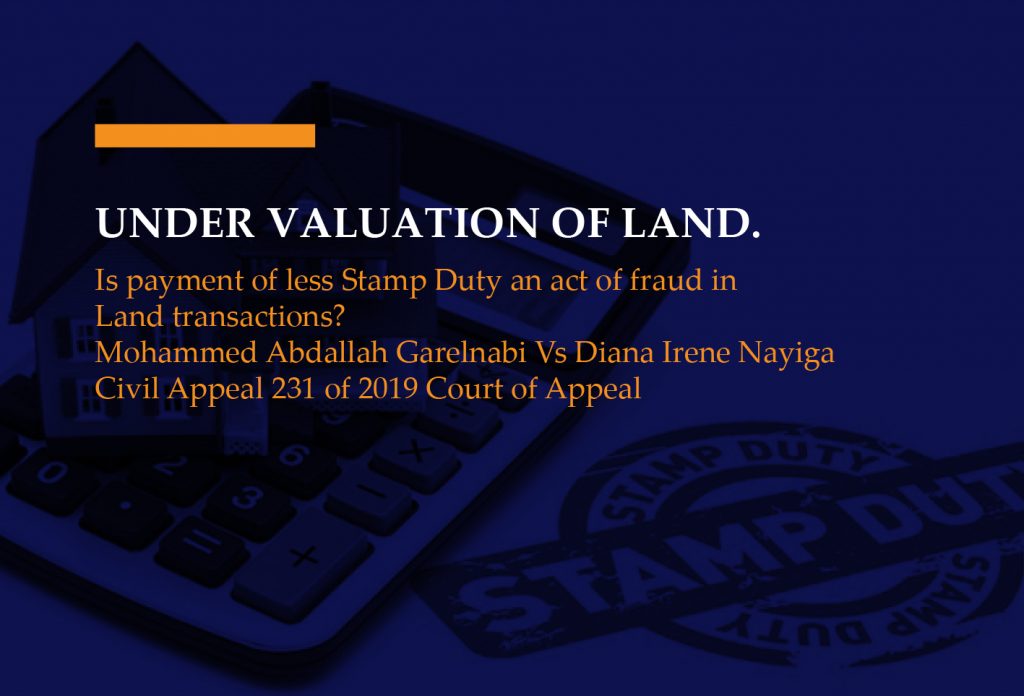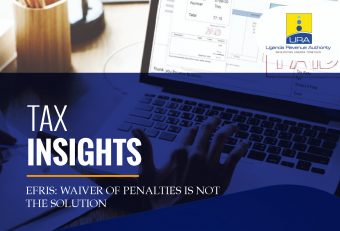Brief Facts
The Appellant and Respondent were both in possession of certificates of title registered in each of their names over the same piece of land. The Appellant’s certificate of title showed that he was registered as proprietor in July 1976, whereas the respondent’s certificate of title showed that she was registered as proprietor in January 2001. The respondent remained in uninterrupted possession of the suit land till 2005 when the appellant evicted her from it. She successfully sued the appellant for trespass in the High court hence this appeal.
Grounds of appeal
The major ground of appeal was that the learned trial judge erred in law and fact when he held that the respondent was a bona fide purchaser for value of the suit land.
In arguing this ground, counsel for the Appellant contended that in under declaring the value of the land, thereby paying less stamp duty, the Respondent had committed fraud was thus not a bona fide purchaser for value.
Resolution
Court upheld the findings of the trial court and held that value of the land as assessed by the Chief Government Valuer (CGV) finally settles the necessary Government tax to pay regardless of whether the purchaser states a lesser value on the form. For as long as the purchaser pays a duty assessed by CGV, it cannot be evidence of fraud attributed to a purchaser. However, if the lands office finds that a higher duty could have been paid had the CGV conducted a proper assessment, then a minute should be entered on the file and the concerned party should be notified to pay the stamp duty as would have been commensurate.
Court distinguished the case of Betty Kizito V David Kizito and others Supreme Court Civil Appeal No. 08 of 2018 as it held that the whole context in the Betty Kizito case involved and was riddled with fraudulent transactions. In distinguishing it,, the Court of Appeal further stated that fraud had not been pleaded and neither had it been proved.
Take-away points
- Depending on the unique facts and circumstances of any land transfer registration, the under declaration of the land value on the transfer form is not fraud per se.
- The land value assessment by the CGV is the binding value for purposes of the determining the taxes/ stamp duty payable for land registration/ transfers.
- The valuation by the CGV can be varied by Land’s office, if the initial assessment was erroneous or flawed and the proper notified to pay the correct taxes.


